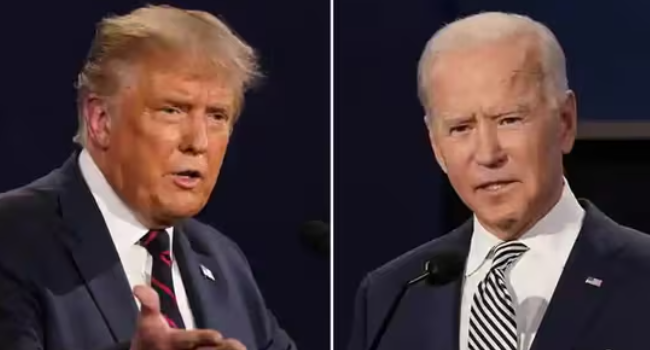
From $500 Bills to Airport Names: Inside the Summer of Trump in Congress
This summer, Trump Republican lawmakers in the House of Representatives have been making waves with a series of symbolic gestures honoring former President Donald Trump.
From proposing his likeness on a hypothetical 0 bill to advocating for a Congressional Gold Medal in his name, these efforts reflect a concerted bid for Trump’s endorsement, which remains a potent force within the GOP.
Representative Paul Gosar of Arizona recently stirred controversy by proposing the reintroduction of the 0 bill, featuring Trump’s portrait instead of President William McKinley’s, citing inflation concerns under President Biden.
Meanwhile, Florida’s Representative Anna Paulina Luna pushed for Trump to be awarded the Congressional Gold Medal, highlighting his administration’s foreign policy achievements.
The push to honor Trump extends beyond currency and medals. Representative Greg Steube of Florida has proposed naming the expansive U.S. coastal exclusive economic zone after Trump, covering an area larger than the entire landmass of the United States. Additionally, there’s a pending bill to rename Dulles International Airport in Virginia after Trump, replacing its current namesake, John Foster Dulles.
However, these proposals haven’t been without controversy. Democrats responded with a satirical bill to rename the Miami Federal Correctional Institution after Trump, a jab at his legal troubles, including recent convictions related to hush money payments and his role in the January 6th Capitol riot.
Former Congressman Fred Upton, who represented Michigan for over two decades, expressed skepticism about the appropriateness of these honors in light of Trump’s divisive legacy. Upton emphasized that bipartisan support and time might be necessary before such naming proposals gain traction.
Historically, renaming significant landmarks has been a slow and bipartisan process. For instance, Ronald Reagan Washington National Airport was renamed nearly a decade after Reagan’s death, under a law signed by Democratic President Bill Clinton.
The flurry of proposals reflects the ongoing influence Trump holds within the Republican Party, where his endorsement can make or break political careers. Critics argue that such gestures risk normalizing Trump’s controversial actions and rhetoric, particularly given his legal challenges and the aftermath of the January 6th events.
As the 2024 presidential election looms, these symbolic acts underscore the GOP’s internal dynamics and the extent to which Trump continues to shape party politics. Whether these proposals will advance remains uncertain, as they navigate the legislative process amid broader political debates.
In conclusion, while Republican lawmakers vie to honor Trump through legislative means, these efforts highlight deeper divisions within American politics and the enduring impact of Trump’s presidency on the nation’s political landscape.